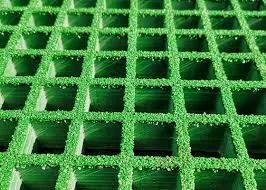
-
 Afrikaans
Afrikaans -
 Albanian
Albanian -
 Amharic
Amharic -
 Arabic
Arabic -
 Armenian
Armenian -
 Azerbaijani
Azerbaijani -
 Basque
Basque -
 Belarusian
Belarusian -
 Bengali
Bengali -
 Bosnian
Bosnian -
 Bulgarian
Bulgarian -
 Catalan
Catalan -
 Cebuano
Cebuano -
 China
China -
 China (Taiwan)
China (Taiwan) -
 Corsican
Corsican -
 Croatian
Croatian -
 Czech
Czech -
 Danish
Danish -
 Dutch
Dutch -
 English
English -
 Esperanto
Esperanto -
 Estonian
Estonian -
 Finnish
Finnish -
 French
French -
 Frisian
Frisian -
 Galician
Galician -
 Georgian
Georgian -
 German
German -
 Greek
Greek -
 Gujarati
Gujarati -
 Haitian Creole
Haitian Creole -
 hausa
hausa -
 hawaiian
hawaiian -
 Hebrew
Hebrew -
 Hindi
Hindi -
 Miao
Miao -
 Hungarian
Hungarian -
 Icelandic
Icelandic -
 igbo
igbo -
 Indonesian
Indonesian -
 irish
irish -
 Italian
Italian -
 Japanese
Japanese -
 Javanese
Javanese -
 Kannada
Kannada -
 kazakh
kazakh -
 Khmer
Khmer -
 Rwandese
Rwandese -
 Korean
Korean -
 Kurdish
Kurdish -
 Kyrgyz
Kyrgyz -
 Lao
Lao -
 Latin
Latin -
 Latvian
Latvian -
 Lithuanian
Lithuanian -
 Luxembourgish
Luxembourgish -
 Macedonian
Macedonian -
 Malgashi
Malgashi -
 Malay
Malay -
 Malayalam
Malayalam -
 Maltese
Maltese -
 Maori
Maori -
 Marathi
Marathi -
 Mongolian
Mongolian -
 Myanmar
Myanmar -
 Nepali
Nepali -
 Norwegian
Norwegian -
 Norwegian
Norwegian -
 Occitan
Occitan -
 Pashto
Pashto -
 Persian
Persian -
 Polish
Polish -
 Portuguese
Portuguese -
 Punjabi
Punjabi -
 Romanian
Romanian -
 Russian
Russian -
 Samoan
Samoan -
 Scottish Gaelic
Scottish Gaelic -
 Serbian
Serbian -
 Sesotho
Sesotho -
 Shona
Shona -
 Sindhi
Sindhi -
 Sinhala
Sinhala -
 Slovak
Slovak -
 Slovenian
Slovenian -
 Somali
Somali -
 Spanish
Spanish -
 Sundanese
Sundanese -
 Swahili
Swahili -
 Swedish
Swedish -
 Tagalog
Tagalog -
 Tajik
Tajik -
 Tamil
Tamil -
 Tatar
Tatar -
 Telugu
Telugu -
 Thai
Thai -
 Turkish
Turkish -
 Turkmen
Turkmen -
 Ukrainian
Ukrainian -
 Urdu
Urdu -
 Uighur
Uighur -
 Uzbek
Uzbek -
 Vietnamese
Vietnamese -
 Welsh
Welsh -
 Bantu
Bantu -
 Yiddish
Yiddish -
 Yoruba
Yoruba -
 Zulu
Zulu
fiberglass winding machine
The Importance of Fiberglass Winding Machines in Modern Manufacturing
Fiberglass winding machines play a crucial role in the manufacturing of composite materials, particularly in the production of fiberglass reinforced plastics (FRP). These machines are designed to automate the winding process of fiberglass yarns or roving around a core, allowing for the creation of strong, lightweight products used in various industries, including aerospace, automotive, and construction.
The primary function of a fiberglass winding machine is to ensure uniform tension and lay-up of the fiberglass material. This is essential to achieve the desired strength and durability of the final product. The machine typically consists of a rotating spindle, guides, and a control system that regulates the speed, angle, and tension of the winding process. Advanced models are equipped with computer numerical control (CNC) technology, enabling precise control over the winding pattern and allowing manufacturers to produce complex geometries with high precision.
One of the key advantages of fiberglass winding machines is their efficiency. Automation reduces the time required for manual winding and minimizes human error, which can lead to inconsistent product quality. This efficiency translates into higher production rates and lower labor costs, making the process more economically viable for manufacturers. Additionally, fiberglass winding machines can produce high volumes of components in a relatively short period, meeting the demands of industries that require rapid prototyping and large-scale production.
fiberglass winding machine

The versatility of fiberglass winding machines is another significant advantage. They can be adapted to work with a variety of core materials and shapes, including pipes, tanks, and cables. This flexibility allows manufacturers to innovate and meet specific customer requirements without the need for extensive modifications to their production lines. The ability to use different winding patterns and layer combinations also enhances the mechanical properties of the final product, making them suitable for a wide range of applications.
Furthermore, as industries increasingly turn toward sustainable practices, fiberglass winding machines contribute to the creation of eco-friendly products. Fiberglass composites are lightweight and corrosion-resistant, which can lead to reduced energy consumption and longer product lifespans compared to traditional materials.
In conclusion, fiberglass winding machines are essential tools in modern manufacturing, enabling the efficient production of high-quality composite materials. Their ability to enhance productivity, ensure precision, and promote sustainability makes them invaluable in various sectors. As technology continues to advance, we can expect further innovations in fiberglass winding machinery, leading to even more revolutionary developments in material science and manufacturing processes.









